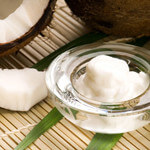 The taproot of the beet plant has a long history of use as a medicine. The ancient Romans, for example, would consume beets to treat fevers and constipation. In the Middle Ages, Europeans would turn to these red-colored roots to remedy illnesses related to blood and digestion. And ancient Chinese medicine, which has always held cooling and sweet vegetables in high regard, still prescribes beets for individuals suffering from cardiovascular conditions.
The taproot of the beet plant has a long history of use as a medicine. The ancient Romans, for example, would consume beets to treat fevers and constipation. In the Middle Ages, Europeans would turn to these red-colored roots to remedy illnesses related to blood and digestion. And ancient Chinese medicine, which has always held cooling and sweet vegetables in high regard, still prescribes beets for individuals suffering from cardiovascular conditions.
Like many colorful vegetables, beets are not an especially great source of essential vitamins and minerals. Instead, their health benefits are attributable to their rich concentrations of some truly special compounds.
List of Health Benefits
Betanin – Ever wondered why beets are red? That’s because they’re one of the greatest sources of betanin, a red-violet pigment with proven disease-fighting properties. For example, a 2011 study published in the journal Anti-Cancer Agents in Medicinal Chemistry found that both doxorubicin (a popular anti-cancer medicine used in drugs like Adriamycin) and red beetroot extracts exhibited a chemopreventive effect in human breast and prostate cancer cell lines. The researchers ascribed this benefit to beets’ high concentrations of betanin, one of the best-known pigments in the group betalains.
Betaine – Another betalain found in beets, called betaine, is known to aid liver function. A study featured in the journal Amino Acids in January 2015, for instance, found that rats fed a high-fat diet supplemented with betaine demonstrated reduced fat accumulated in the liver, and improved lipid metabolism, when compared to rats fed a control diet or high-fat diet without betaine supplements. These results suggest that beets can help treat non-alcoholic fatty liver disease, a common but reversible liver condition linked to excess body weight.
Nitrates – Though nitrates have acquired a negative reputation in recent years due to their association with cured meats and other processed foods, naturally-occurring nitrates – found in vegetables such as spinach, radishes, and beets – actually have medicinal benefits when consumed in moderation. For example, a study conducted by researchers at the Baker Heart and Diabetes Institute in Melbourne, Australia, found that volunteers who consumed beet juice experienced a considerable reduction in blood pressure when compared to the control group. The lead researcher, Leah Coles, attributed this result to the juice’s high concentrations of dietary nitrates.
Other nutrients – While beets are not rich in conventional nutrients compared to, say, leafy green vegetables, they are still a good source of certain minerals. One cup of raw beets, for instance, supplies us with approximately 37 percent of our recommended daily intake (RDI) of folate, 22 percent of our RDI of manganese, and 13 percent of our RDI of potassium, an important macromineral responsible for regulating water balance. Beets are also packed with both soluble and insoluble fiber, making them suitable for treating constipation and as part of a weight loss diet.
Selecting and Cooking Beets
When selecting beets, aim for organic varieties that are firm and free from spots, bruises, and wet patches. Shriveled beets should also be avoided, since this indicates that the roots are aged and tough.
Since many of the compounds in beets (including the betalains) are damaged by heat, it’s important to cook beets lightly. Gently steaming beets for around 15 minutes should be enough to enhance their flavor without compromising their nutrient profile.






